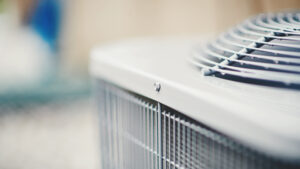Alabama homeowners like you know that heavy rainfall and high humidity can put a strain on many aspects of your home. Outdoor air conditioning units, in particular, face risks when water accumulates around them. Pooling water may seem harmless at first, but not taking care of the issue right away can lead to costly repairs and unforeseen safety hazards. Understanding the risks and prevention strategies can help you protect your home and your cooling system.

What Causes Water to Pool Around an AC Unit?
Several factors can contribute to water collecting around your outdoor air conditioning unit. Poor yard drainage is one of the most common culprits. Homes built on flat or improperly graded land often allow rainwater to collect near the system. Without proper drainage, even moderate rainfall can leave water lingering around the condenser.
Alabama’s high humidity and frequent heavy rain also play a role. During particularly wet months, the ground may stay saturated and runoff may be inadequate, which increases the chance of water pooling around the unit.
In some cases, leaks from nearby gutter downspouts or poor landscaping design can also direct water toward your air conditioner, worsening the problem.
Risks of Ignoring AC Flooding
Ignoring water pooling around an outdoor AC unit carries real consequences. Electrical hazards are one concern. Outdoor units contain wiring and connections that are vulnerable to prolonged moisture exposure. Standing water that reaches these components can increase the risk of short circuits, blown fuses, or tripped breakers.
Flooding can also corrode coils, fan motors, and cabinet parts. While the compressor itself is sealed, extended water exposure can still stress the system and lead to costly AC repairs.
Additionally, water around your AC can reduce system efficiency and shorten its lifespan. When the unit struggles to operate under wet conditions, it uses more energy to maintain indoor temperatures. This strain can raise utility bills and may force you to replace your system sooner than expected.
How to Prevent Flooding Around Your AC
Preventing water issues starts with regular maintenance and inspections. Our technicians can check for signs of water damage around the base of the unit and make sure components remain dry and functional. Scheduled maintenance keeps small problems from turning into major repairs.
As a homeowner, you should also make sure your yard has proper grading and drainage. The soil around your unit should slope away from the system, directing rainwater toward storm drains or safe runoff areas. Installing gravel beds or drainage trenches can also reduce the chance of water pooling.
If your home is in a particularly low-lying area or experiences persistent water issues, installing a sump pump or additional drainage solutions can help protect your air conditioning unit from seasonal flooding. These systems redirect water away from the unit and help maintain stable, dry conditions around outdoor components.
Why This Is a Big Issue in Alabama
Alabama’s climate makes AC flooding a common concern for homeowners like you. Birmingham and Trussville see consistently high humidity, which increases the amount of condensation produced during cooling. When combined with seasonal storms and heavy rainfall, these conditions create a greater risk of water collecting around outdoor AC units if preventive measures aren’t in place.
Wilbur’s provides solutions for local homeowners facing these issues. Whether you need AC maintenance or drainage recommendations, we make sure that your outdoor units remain operational. Our team understands Alabama’s weather patterns and knows how to help you avoid unnecessary repairs and maintain energy efficiency.
Contact a Reliable HVAC Company Today
Standing water around your AC unit is more than an inconvenience. It can create electrical hazards and damage critical components within your system. Wilbur’s has been serving Alabama homeowners since 1979, giving us over 45 years of trusted experience in keeping cooling systems safe and reliable. Contact us today to schedule an inspection with our team and keep your system running smoothly throughout the year.



